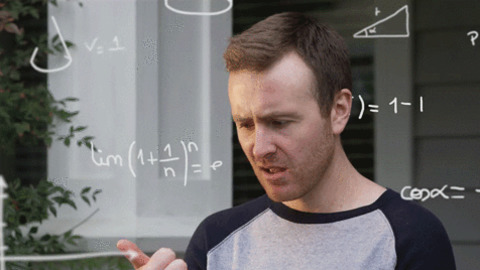What is Dyscalculia?
Ok - so you’ve been looking for the meaning of
“What is Dyscalculia?”
You think you might have an issue. Maybe you don’t even know how to pronounce it? Don’t worry - neither did we. It’s actually pronounced (DIS KAL ‘Q’ LIA). Yes with a very Q sound for the cu. Go figure right?
From our experience of people coming to us, you will be a stressed or worried parent who can’t understand why your child is having problems with the simplest of sums.
So….What is Dyscalculia? In its simplest terms, it’s a lot like dyslexia, which most of us have heard off and understand.
Dyslexia is an issue where the brain jumbles up letters, making it difficult to make sense of words and sentences.
Tom Cruise, Richard Branson, Keira Knightley, Tommy Hilfiger (to name just a few) have all been diagnosed with Dyslexia and found a way to get to the top of their profession despite it.
Here is a video that helps explain what Dyscalculia is….
ROnit bird is one of the worlds leading experts on dyscalculia.
Dyscalculia specialist Ronit Bird discusses the difficulties some children have in developing number sense and learning basic arithmetic. She explains some of the common symptoms and indicators for dyscalculia and offers suggestions for how parents can help their children at home.
“Ok ok... yes we all know about Dyslexia but what is Dyscalculia?”
It is similar but operates with numbers instead of words.
Instead of the numbers appearing as the bulk of the world’s population see them, for 3 - 6% (the %’s are probably way more as Dyscalculia is underdiagnosed) of the world’s population they will find it hard to understand everyday math concepts, make sense of numbers and memorise formulas. (Like we need formulas in everyday life anyway right??)
It can however impair important aspects of life such as learning how to drive a car, how we play with friends, baking cupcakes (ah - here’s an important formula!)… or even the ability to plan and schedule the party to eat the cupcakes!
Dyscalculia is also one of those tricky customers - it shows up differently in every individual. One of the most serious side effects, which is common in most people with Dyscalculia - is how it can damage your self-esteem, create anxiety and lead to missed opportunities - and this is all unnecessary and unacceptable! A fantastic way to help learn math basics is with a site called FABLES WORLD. This site teaches through visuals with funny stories and animations.
What is it like to have Dyscalculia?
Watch this great video from Nutty Numbers that explains the differences between how an atypical brain sees numbers compared to a dyscalculia brain.
What is Dyscalculia and is it only children that struggle?
You might think that this is the case, as you often see children throwing a tantrum when it comes to doing math?
If you have Dyscalculia in your life you will have it until the day you die, unless you learn a new way of operating. Don’t worry - you are not alone… more than half of parents can’t help their children with maths homework and much of this is due to undiagnosed Dyscalculia. These parents have our sympathies!
Dyscalculia in adults goes largely unnoticed. Adults don't throw themselves on the floor, whilst screaming “Nooooooo, I don't know what 9x8 is!!!” Instead, they tend to shy away from anything to do with numbers, not that this is a good thing! You can read more about that in our ADULT SYMPTOMS section.
At Dyscalculia.me we have tools to alleviate Dyscalculia in children, teens and adults. You never have to stress again whilst you watch your child fall behind at school. We believe all maths can be taught in a way for Dyscalculia brains to understand. Once they grasp the basic concepts in maths like counting, number bonds and multiplication they stand a much greater chance of success and build a more positive relationship with maths.
You will know the strategies that have worked time and time again for thousands of sufferers across the world who now are saying “Go on, test us….ask us what 7x8 is?”
Best of all, once you learn you can share with anyone, helping friends, family, children and small math-loving dogs, to hit the heights of success they never thought possible!
Here is a wonderful video explaining DYSCALCULIA from someone who has it. The best thing about Line is that she has worked out ways to deal with her Dyscalculia. Firstly she has identified her difficulties and once she’s recognised them and understood them and then developed coping mechanisms she stands a much better chance at being more successful with the math-related world around her.

